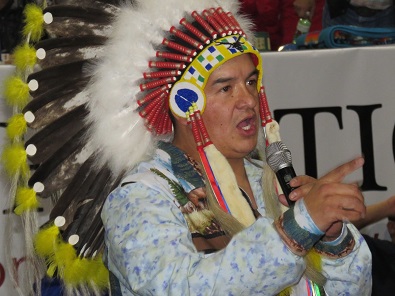File photo
The chief of the FSIN says the federal government is taking too long to address the issue of safe drinking water in First Nations communities.
Bobby Cameron says despite the federal government’s promise to put an end to boil water advisories in First Nation communities, 17 Saskatchewan First Nations still do not have access to safe drinking water. The federal government has proposed to invest $1.8 billion over five years to First Nations for water infrastructure, operations and management.
He says that having access to clean water is a fundamental treaty right and a basic human right.
“The federal bureaucrats are pumping the brakes on water security, while federal government is greenlighting pipelines, which we know pose a threat to our water supply,” adds Cameron.
A number of communities are still dealing with the aftermath of Husky Energy’s pipeline leak along the North Saskatchewan River last summer.
James Smith Cree Nation was among those affected the most. Cameron says that communities further downstream like Red Earth and Cumberland House are seeing the impacts along the North Saskatchewan River as well.
“There could be more compensation coming to affected bands,” he says.
The FSIN chief says that stricter protections for the environment should be put in place to protect the land and First Nations which benefit from the economic and revenue sharing opportunities that result from pipeline projects.
He says that the FSIN is looking at developing a First Nations advisory committee that would monitor the lands and waterways to ensure that protection is happening.
“We know that water is life. It affects our body, our mind, and our well-being,” says Cameron.
